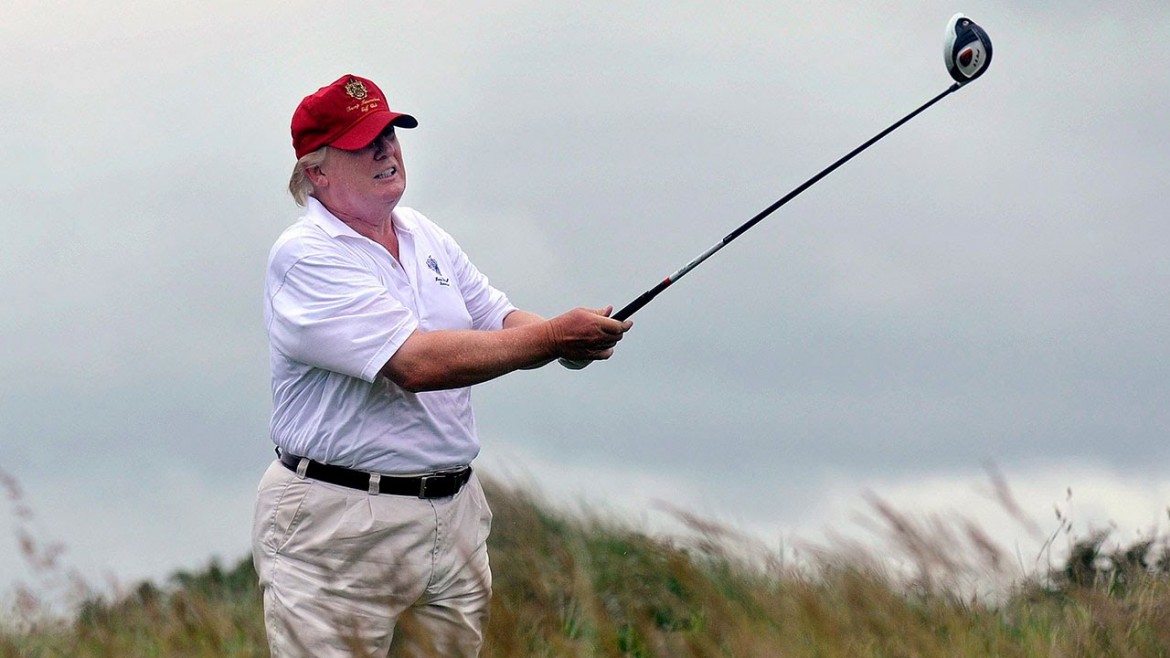Analysis
In China summit, Trump is in a position he hates: weakness
In the first face-to-face meeting with the Chinese president, Donald Trump is in a position of weakness: He has to come away with a trophy to show the American public.

On Wednesday, with its usual provocative punctuality, North Korea completed yet another ballistic test by launching a medium-range missile into the waters of the Sea of Japan, 60 km off the South Korean coast. As if it were necessary, Xi Jinping and Donald Trump rushed to remind us about the North Korean issue in East Asia.
This issue is to be the focus of meetings Thursday and Friday between the leaders of the two major contemporary world powers. The two-day summit at Mar-A-Lago — the Florida resort favored by Trump for meetings when he wants to get to the point, without Washington institutional ceremony — will be the first opportunity for a historic face to face full of unknown variables.
The Chinese are facing difficult times. The idea of The Donald at the White House seemed a communication ploy to add a little pepper to the elections: Deep down, the Chinese leadership would have preferred Clinton, since they are more at ease in dealing with a tough but known opponent than a smoky and elusive bilateral relationship with Trump.
Now, however, this occasion in Florida is the opportunity to reveal the unknown and begin to decipher what kind of relationship will mark the future of a China determined to consolidate its rise in the globalized international community, and the United States of “Make America Great Again,” bent on protectionism and nationalism within the capitalist system. The two positions seem irreconcilable, as irreconcilable as the disruptive personalities of Trump and Xi, centralist leaders in their own ways and less inclined to waves of international diplomacy.
According to the national press, China’s approach to the meeting will be cautious, since it is in a strong objective advantage to sit at a table where Beijing has few requests to make, while Trump — in search of at least some superficial results to show to his own public — will be forced into a role that he hates: the weak side.
On North Korea, for example, as published on the pages of the Global Times — China’s English-language daily newspaper that usually reports on the positions held by the hawks of the Chinese Communist Party — comes a very blunt handbook. If the United States wants to normalize the situation with Pyongyang, they have to reduce its influence in the area and let China handle its cross-relationships with North Korea, South Korea and Japan, effectively retiring the Pivot to Asia initiative of Obama’s foreign policy. Trump’s threat of interventionism in North Korea, on the other hand, would lead to devastating consequences for stability. If there’s one thing that China cannot stand it’s instability, chaos and the unexpected.
On the commercial side, Xi will be asked to curb the deficit suffered by Washington in the trade balance with Beijing, currently estimated at $1.4 trillion from 2013 to the present. Stopping the bleeding of money attributed to Chinese dumping was one of the flagships of the Trump campaign. On the other hand, Trump will try to attract the huge Chinese investments needed to support the creation of new jobs in the U.S.
Xi would be ready to honor these requests as long as he can get America’s commitment not to interfere in “national issues” like Tibet, Hong Kong and Taiwan, and support the great project symbol of the Xi era, the New Silk Road. To all effects, it will become the only intercontinental transnational commercial network after the TPP was halted, as Trump wanted.
All this, as suggested by the Xinhua news agency, in the name of cooperation and mutual benefit of both countries that “should do more than just looking after their own national interests.” The short antithesis of “Make America Great Again”: Maybe, this is a toad too big for Trump to swallow.
Originally published at https://ilmanifesto.it/al-tavolo-con-xi-trump-nel-ruolo-che-piu-odia/ on 2015-10-08
